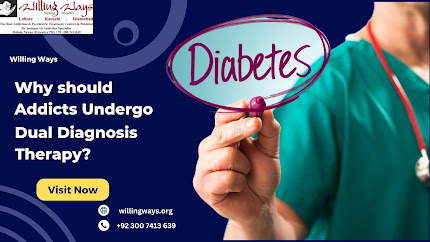Tips for Preventing Ativan Addiction and Misuse
Ativan is a prescription drug used at the best addiction treatment center in Islamabad to treat anxiety. The drug is a member of the benzodiazepine family and has Identified and treated sleep disorders with a high addiction probability. An Ativan addiction occurs when a person feels like there is a need to continue to take medication even with no medical need. People want to be free from sleeping disorders Addiction is more likely to occur if the drug has been taken daily for more extended periods or at a higher than prescribed dose. Ativan addiction is also more common in people who have used drugs or alcohol.
When a person becomes addicted to a drug, the body cannot function properly if usage is discontinued. Withdrawal symptoms can include, but are not limited to, the following:
- Increased anxiety
- Feelings of tension
- Depression
- Insomnia
- Irritability or restlessness
- Mental confusion
- Sweating
- Dizziness
- Change in personality
- Light/sound sensitivity
- Nausea, vomiting, and diarrhea
- Numbness/tingling
- Rapid heart rate
- Heart palpitations
- Hallucinations
- Seizures
- Panic attacks
- Memory loss
When problems occur, a person must stay on the drug to avoid experiencing withdrawal symptoms.
Despite the numerous benefits of benzodiazepine drugs, there is a high
potential for abuse and misuse, which means taking the medication only as
prescribed and for the intended reason is essential.
A person may feel tired or uncoordinated in the initial few days of
taking Ativan. As the body becomes accustomed to having the drug, a tolerance
develops, and it takes more of the drug to experience the same effects. An
addict to Ativan will need larger doses and become physically dependent on the
drug over time.
Ativan can be hazardous when taken in large doses and for
prolonged periods. Users who experience an overdose of Ativan will exhibit different
symptoms according to how much of the drug was taken and whether or not it was
taken in conjunction with other drugs or alcohol. Some common symptoms of an
Ativan overdose include the following:
- Sedation
- Mental confusion
- Coma
- Speech slurring and problems
- Lethargy
- Lowered blood pressure
- Breathing difficulties
- Loss of life
Because Ativan works by slowing down the activity in the brain,
when a person with an Ativan addiction discontinues the medication, the brain
activity can rebound and spiral out of control. When the brain's activity is
out of control, a person can experience seizures and other harmful side
effects. Withdrawal from Ativan can be a problematic situation that medical
professionals and rehabilitation specialists best handle.
An inpatient or outpatient rehabilitation facility, specialized
care, individualized therapy, counseling, supervision, and guidance from
medical professionals and rehabilitation specialists are all components of
Ativan addiction treatment. Once treatment has been successful, a
person can live a healthy, productive lifestyle again.




Comments
Post a Comment